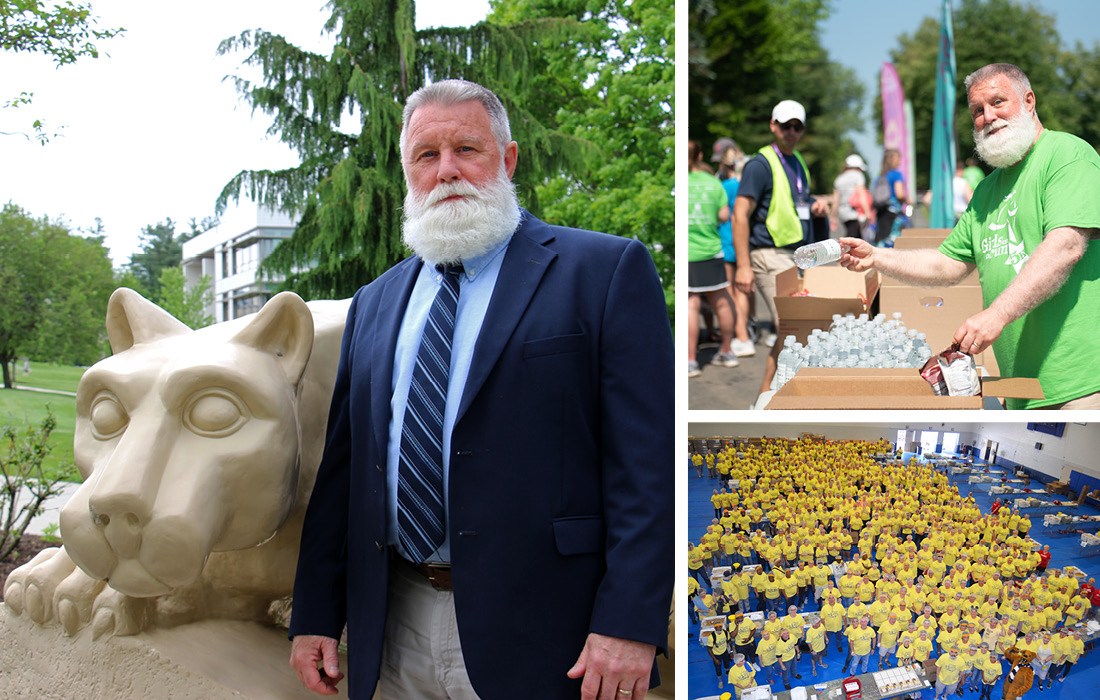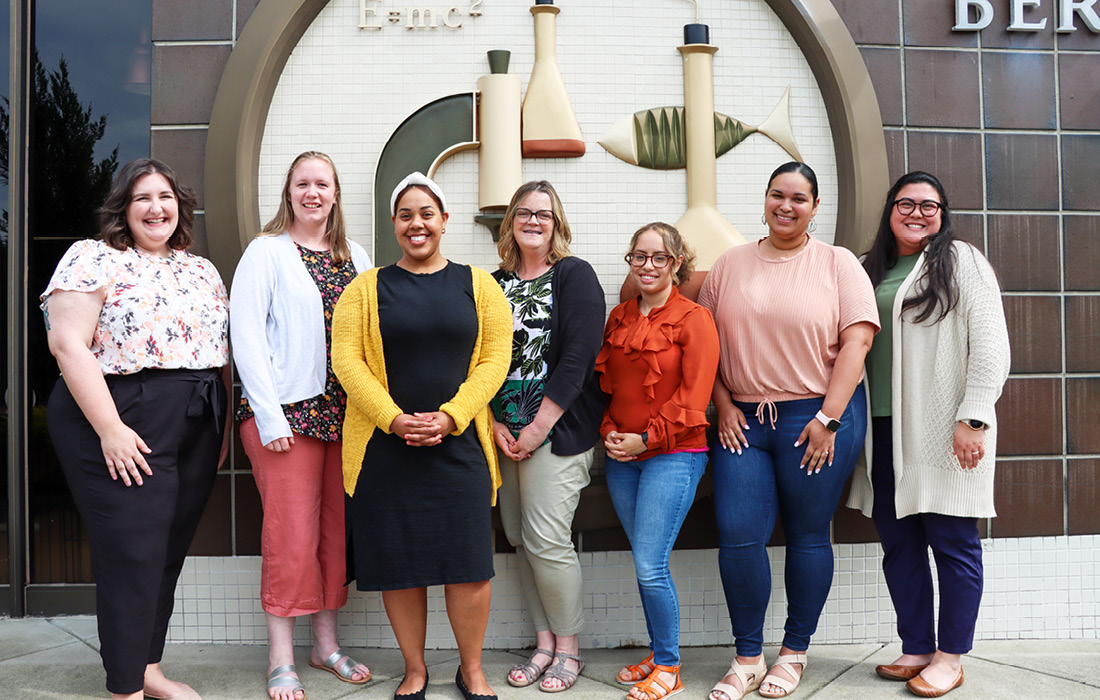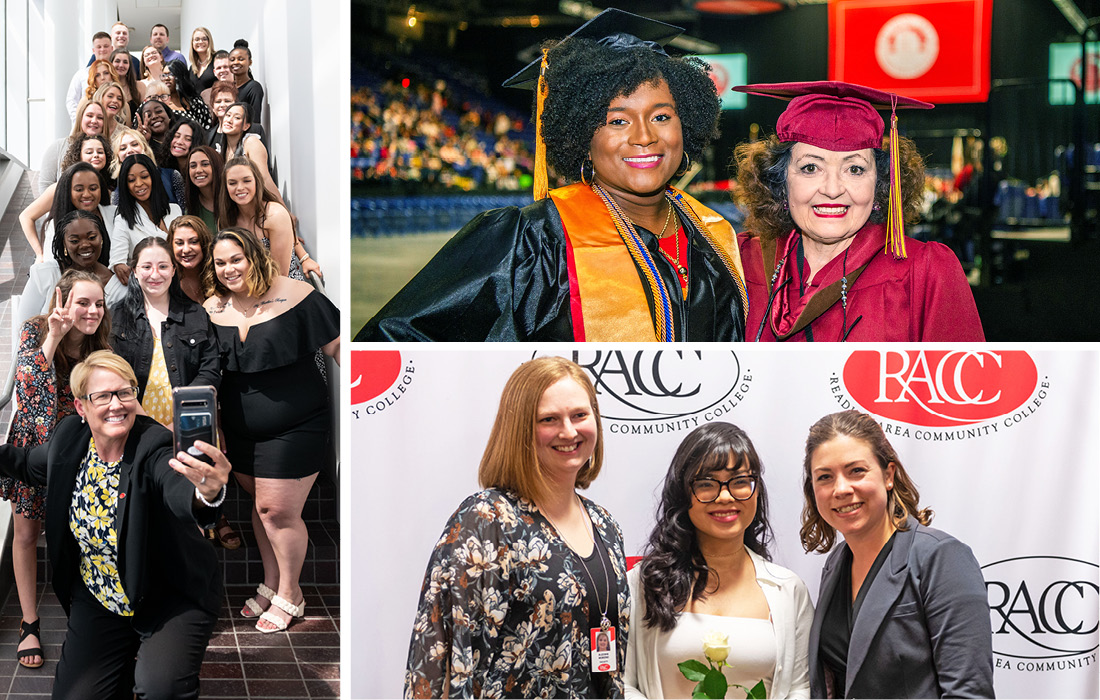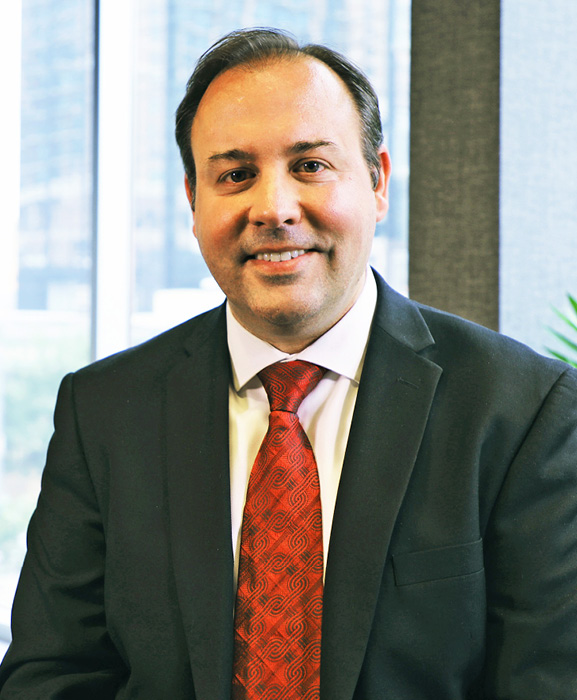To make great things happen in a community, be it the community at large, or on a college campus, you need a strong team of go-getters. It’s a good thing that Berks County’s five colleges and universities employ staff members dedicated to doing exactly that. Meet a few of them here.
Kirshman Understands the Secret to Student Success
Dr. Andrea Kirshman, associate provost for Student Success and Academic Excellence at Kutztown University, has been at KU for 34 years. She began her first 10 years in the Career Development Center and followed with 15 years of oversight of the university’s student orientation program before moving into her current role in 2013.
Kirshman’s responsibilities and influence as the leader of the Center for Student Success are far-reaching across the campus and impact the success of every student. The programs, initiatives and services Kirshman oversees have a direct relationship to retention and student success as they help students meaningfully engage with the KU campus community and foster the development of skills and experiences that will last a lifetime.
Her dedication to the university and students does not end there; Kirshman is a leader on the Chambliss Student Academic Achievement Award Committee, the Commencement Committee and the Management Professional Development Committee as well as coordinating the STARS summer bridge, among others. Kirshman has an active role on the Student Success team and is very involved with grant funded programs that support students in middle school, high school and college.
Under Kirshman’s driven leadership, she has established a group of committed individuals who work with students to help them set clear goals for their academic success and empower them with the resources to achieve their goals. She knows that student success substantially influences retention rates and she ceaselessly focuses on finding innovative ways to enable students to make their academic dreams a reality. During the 2021-2022 academic year, the retention rate of first-year students soared to 78 percent, the highest for the university since fall 2008.
Kirshman has been an invaluable asset to Kutztown University for more than three decades. Her orchestration of her areas of oversight exemplifies Kutztown University’s mission to provide high-quality education to prepare students to meet the lifelong intellectual, ethical, social and career challenges and provide support to students to meet their unique potential. She is passionate about building partnerships with students and staff to create and deliver indispensable resources that are advantageous to student success. Kirshman plans to implement a student success platform that will engage students, faculty and staff in supporting students from inside and outside the classroom. Her extraordinary efforts to create a campus environment where all students can flourish is one of the many attributes of Kirshman that makes her an admirable member of the KU community.

Dawson Serves as Bridge to Community Organizations
It is widely known that Penn State Berks has a long history of serving the needs of the local community, dating back to 1914, when the University began offering agricultural extension to Berks County residents. What most people do not know is that the college continues to expand its community outreach in many ways. One such way is by hosting more than 25 community events on campus each year, as well as many college events that are open to the public, including summer camps, Earth Day and diversity celebrations, arts and lecture series programs and many others.
All these campus initiatives are coordinated by Mark Dawson, interim director of business services. Dawson, who prefers to work behind the scenes, meets with community organizations and coordinates all campus events — helping to ensure their success.
“Mark Dawson has served as a bridge to the local community by facilitating these events and fulfilling our land-grant mission,” states Penn State Berks Chancellor George Grant, Jr.
The first to say that it is a team effort, Dawson credits his Maintenance and Operations staff, who work to ensure that the campus is in pristine shape and to support every facet of events, from set up to logistics to tear down. He also attends each event to make sure it runs smoothly.
This year, Dawson began working with My Gut Instinct to bring its annual Guts & Glory Digestive & Wellness Expo to Penn State Berks for the first time. Described as a journey of wellness education, nutritional awareness and health, the Expo will bring more than 1,000 community members to campus on Sept. 24.
Another example is the United Way’s “The Big Cheese,” the largest United Way-driven meal packaging event in the country. Now in its sixth year, Penn State Berks has hosted the event since its inception. This year’s event, held on June 17, brought 500 volunteers to campus to package 250,000 nutrient-fortified mac-and-cheese meals for local families in need. Helping Harvest Fresh Food Bank distributed the meals to local school children through the Weekender Backpack program and local food pantries. The Reading School District also received a portion of the meals.
Dawson is instrumental in helping many other community organizations to coordinate their 5Ks, including Girls on the Run, the Hope Rescue Mission, Threshold Rehabilitation Services, the Berks County Intermediate Unit, Abilities in Motion, the Literacy Council, March of Dimes, Alzheimer’s Association and the Eastern PA Down Syndrome Center, just to name a few.
When he’s not coordinating events and fulfilling his other job responsibilities, Dawson serves as coach of the college’s Rugby Club. He recently began working with Rugby Pennsylvania to host their Spring State Championship, which brings hundreds of high school athletes to campus.
Not only is Dawson instrumental in the college’s community engagement initiatives, but he is a proud Penn Stater. He earned both his baccalaureate and master’s degrees at Penn State Berks, and all six of his daughters are Penn State alumni.

Navigators Fosters Success by Mastering the Middle Ground Between Challenge & Support
by Sarah Matarella
When Adrian Bohinski started as a first-year criminal justice major at Alvernia University in the fall of 2021, he was self-aware of his habits, learning style and original desire to pursue avenues other than higher education.
The rising sophomore’s focus on other career paths resulted in a lack of initial motivation when starting his first classes. It ultimately led him to seek services from Alvernia’s Navigation Office, established in 2019 thanks to funding from a five-year, $2.5 million, U.S. Department of Education’s Title III Part A Strengthening Institutions Grant. The office is led by Activity Director Lee Ann Bieber, who has helped Alvernia students reach academic success for nearly two decades.
“Through pre-arrival check-ins, we strive to figure out many student goals and needs before they arrive on campus,” says Bieber. “While students can be ‘college-ready,’ we want to be institutionally ready for the student to ensure that their experience is the best it can be.”
This preparation has been especially critical as students are not only making an impactful transition, but also have less confidence in choosing a career path and are less equipped to manage college life due to the COVID-19 pandemic. Thus, the navigators adopted a case management model and created a financial, academic, career and social support program which allows them to meet one-on-one with all incoming first-year students to find any barriers to success before they begin classes.
“Our job is to get students on track,” says Lead Navigator Tyler Kearney-Good. “A huge part of it is sitting down, asking questions and reflecting on who they are as individuals so we can create an academic plan based on their needs. The goal of the conversation is to find a healthy medium between supporting and challenging so that students can build autonomy and better habits that they can carry well after their time at Alvernia.”
Other examples of barriers to success that the Navigation Office caters to are those who need to weave a job into their course schedule, students who have obligations to their families or communities, students who need financial literacy assistance, those who need help deciding on a career path and, in the most severe cases, those approaching academic probation.
“After using the Navigation Office services for one year, I’ve learned skills to help me get through life effectively and efficiently, not just to get through school. [The navigators] have taught me how to create a schedule, stay on top of it and edit papers and speeches. They cater to the type of person that you are, and it was those adjustments that impacted me the most,” says Bohinski.
The Title III grant awarded to the university to help increase student achievement, persistence and retention by expanding programming and support services has led to early success. It has assisted efforts in promoting university-wide collaboration with services offered in the Academic Success Center, Student Financial Services, Career Development and Student Activities and has resulted in a 2 percent increase in retention among first-year students.
“The Title III services were one of the best things that I experienced at Alvernia University,” says Bohinski.

Staff Dedicated to Student Success at RACC
Personal attention is a hallmark of a Reading Area Community College (RACC) education. RACC prides itself on small classes and dedicated faculty and staff members who know more than just the student’s name. With an average class size of 15 students and a 19:1 student-to-faculty ratio, our faculty members take extra steps to guide and mentor the students in their academic and career endeavors.
At RACC, students learn directly from accomplished faculty members who are leaders in their fields: scholars, researchers, authors, health professions leaders and artists. Using the insights and expertise they have gained in the field, our faculty prepare their students for real-world success after college.
“I am proud of RACC’s outstanding reputation for preparing students to enter their careers or continue on to earn their bachelor’s degrees. If you are a RACC graduate, you have many options in seamlessly transferring your associate degree to regional as well as nationally recognized four-year institutions. If your plan is to immediately find employment with your degree or certificate, RACC can help you connect with leading employers throughout Berks County. Above all, each of us at RACC is committed to the individual student, and their success. We are the “community’s college” devoted to student achievement and the enrichment of our community,” says RACC President Dr. Susan Looney.
Virtually unlimited access to faculty and staff cultivates an enriching environment where students work side-by-side with educators — in the classroom, in labs, in internship or clinical settings — to create an immersive learning experience.
In a recently completed brand perception market research study conducted by a national market research company specializing in higher education, it was noted that more than 92 percent of current and past students perceive RACC as a great college; with a quality education and a great starting place. Also highlighted was the willingness of faculty and staff to help, and the strength of the tutoring and advising resources.
“It is such an honor to have spent so much of my professional career at RACC. We are a teaching-centered institution where professors know their students, and often their parents, by name. RACC is committed to creating a learning environment that leads to future academic and workforce or career success,” says RACC Senior VP of Academic Affairs/Provost, Cindy Seaman.
RACC is a special place. Unique in its structure and curriculum from the four-year Berks County institutions, students reap all the benefits of a four-year institution — challenging academic programs, state-of-the-art facilities, renowned faculty — with small classes led by dedicated, accessible faculty who are focused on the success of every individual they teach.

Vilic Makes the World a Better Place, One Student at a Time
by Susan Shelly
Boris Vilic believes that Albright College can make the world a better place — one student at a time.
“Everything we’re doing at Albright is creative and innovative,” says Vilic, Dean of the School of Professional Studies, which primarily serves adult learners who are furthering their educations while juggling jobs, families and other obligations. “We are constantly working to overcome challenges facing students and higher education in America.”
The most pressing of those challenges is lack of access for many — a problem that Vilic and others at Albright are tackling head on.
The college in 2019 “right-sized” its tuition and created a simplified financial aid process, providing a more accurate and transparent picture of costs while reducing the amount of tuition increases. The School of Professional Studies also changed its pricing structure, enabling many students to earn a bachelor’s and a master’s degree for about the same price of a bachelor’s degree at other institutions.
“Higher education has an access problem because it costs too much,” Vilic says. “We don’t want to be part of that problem, so we’ve come up with creative ways to lower our costs and become part of the solution.”
The School of Professional Studies also is customizing its programs to meet the particular needs of students, offering accelerated learning that enables certain adult learners to earn a degree and advance their careers in just over a year, and employing certificates and other micro-credentials that can be earned quickly and stacked toward a degree. It also just announced a fellowship for graduate students starting this summer at St. Stephen’s, the Permanent Private Hall of the University of Oxford.
All these steps and programs are aimed at empowering students and enabling them to advance their educations and careers – accomplishments that benefit the entire community. Vilic is partnering with leaders of area businesses, agencies and school districts to address labor shortages and to develop programming that allows employees to advance their educations and careers as they continue to work.
“In just one year a paraprofessional in a school can become a certified teacher, or a counselor assistant at a treatment center can become a certified addictions counselor,” Vilic says. “We are creating programs that support and advance work students are already doing, something that’s proven to increase success rates.”
While the School of Professional Studies is lauded for its programs, Vilic credited President Jacquelyn S. Fetrow for establishing a college-wide standard for creativity and innovation that has spread into the community.
“President Fetrow is someone who lives innovation and creativity,” he says. “She’s always looking to change the status quo.”
He noted the acclaimed Science Research Institute that operates on Albright’s campus, a planned regional community esports hub, a program that partners student volunteers with members of the College Heights community, the move to campus of the Central Pennsylvania African American Museum and other innovations that further connect the college and community.
“It’s really about looking at the college holistically and asking how we can continue growing and changing in ways that benefit the community,” Vilic says.
Higher education will continue to evolve, and Albright will continue to seek solutions to problems in ways that best serve its students.
“Change is inevitable, we know that,” Vilic says. “Our job is to continue taking steps to disrupt problems and find solutions that focus on one thing: the success of our students.”
















